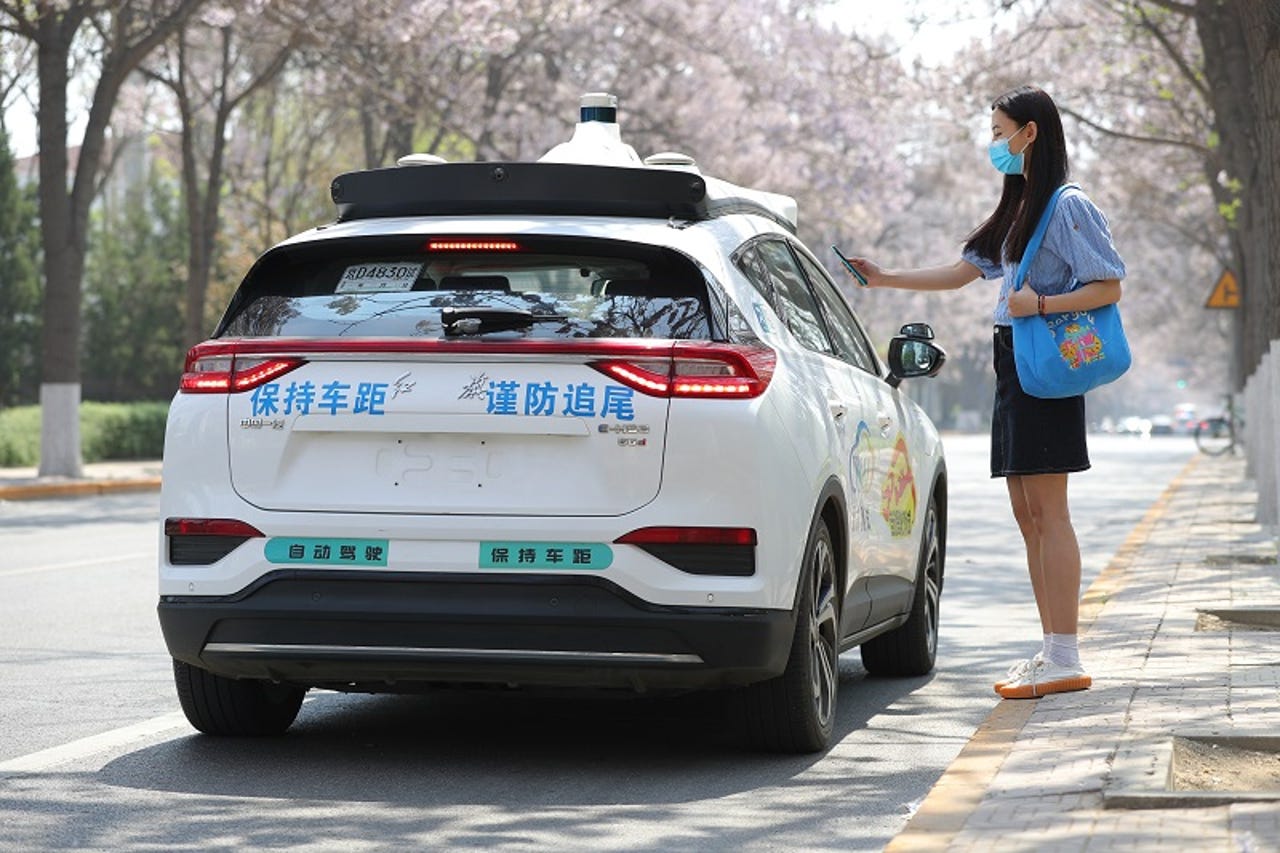































 Image: Baidu
Image: Baidu Baidu and Pony.ai have announced separately that they have each been granted permits to provide their respective driverless taxi service to the general public in Beijing.
According to Baidu, it will begin operating its fully driverless autonomous taxi service with a fleet of 10 vehicles in a designated 60-square-kilomoetre area in Beijing. Users will be able to hail these robotaxis using the Apollo Go mobile app from 10am to 4pm.
There are plans to add 30 more robotaxis to its fleet at a later stage, Baidu said.
Prior to this, Baidu was operating its fully driverless autonomous taxi service at Shougang Park during the recent Beijing Winter Olympics. It has also been running tests of its autonomous vehicles since last October in areas such as Yizhuang, Haidian, and Shunyi in Beijing.
Similarly, Pony.ai said it plans to operate a pilot within a 60-square-kilometre area in Yizhuang, Beijing, under the new permit. Passengers will be able to hail rides, which will be free of charge, using the PonyPilot+ app from 9am to 5pm. Pick-up and drop-off locations will include public facilities such as subway stations, parks, and stadiums, alongside central business centers and residential areas.
Unlike Baidu, Pony.ai said it will retain a "safety supervisor", who will sit in the front passenger seat in its robotaxis.
This new program is in addition to an existing test program in which Pony.ai can offer fee-charging robotaxi services to the general public in Beijing. The company was granted the fee-charging licence in November last year.
Earlier this week, Pony.ai became the first autonomous driving company to be granted a taxi licence in the Middle Kingdom.
The permit will allow Pony.ai to operate 100 autonomous vehicles as traditional taxis in Nansha, Guangzhou, from 8.30am to 10.30pm, with fares charged according to the city's standard taxi prices. Passengers will be able to hail rides and pay for the service through the PonyPilot+ app.
Elon Musk predicts a Tesla robotaxi ride will cost less than a subsidized bus ticket
The Tesla CEO, who once promised to have robotaxis on the road by 2020, says he now aspires to reach volume production of the vehicles in 2024.
Bosch ramps up automated vehicle efforts with Five acquisition
The move will bolster Bosch's presence in the autonomous vehicle market.
Automated trucks could cost 500,000 US jobs, researchers say
A study released by the University of Michigan claims long-haul trucking positions will be lost -- even if a hybrid version of automated trucking is deployed.
Digital radar on a chip speeds autonomous vehicle adoption
The race for better ADAS starts with a new generation of digital sensors.
 Etiquetas calientes:
innovación
transporte
Etiquetas calientes:
innovación
transporte